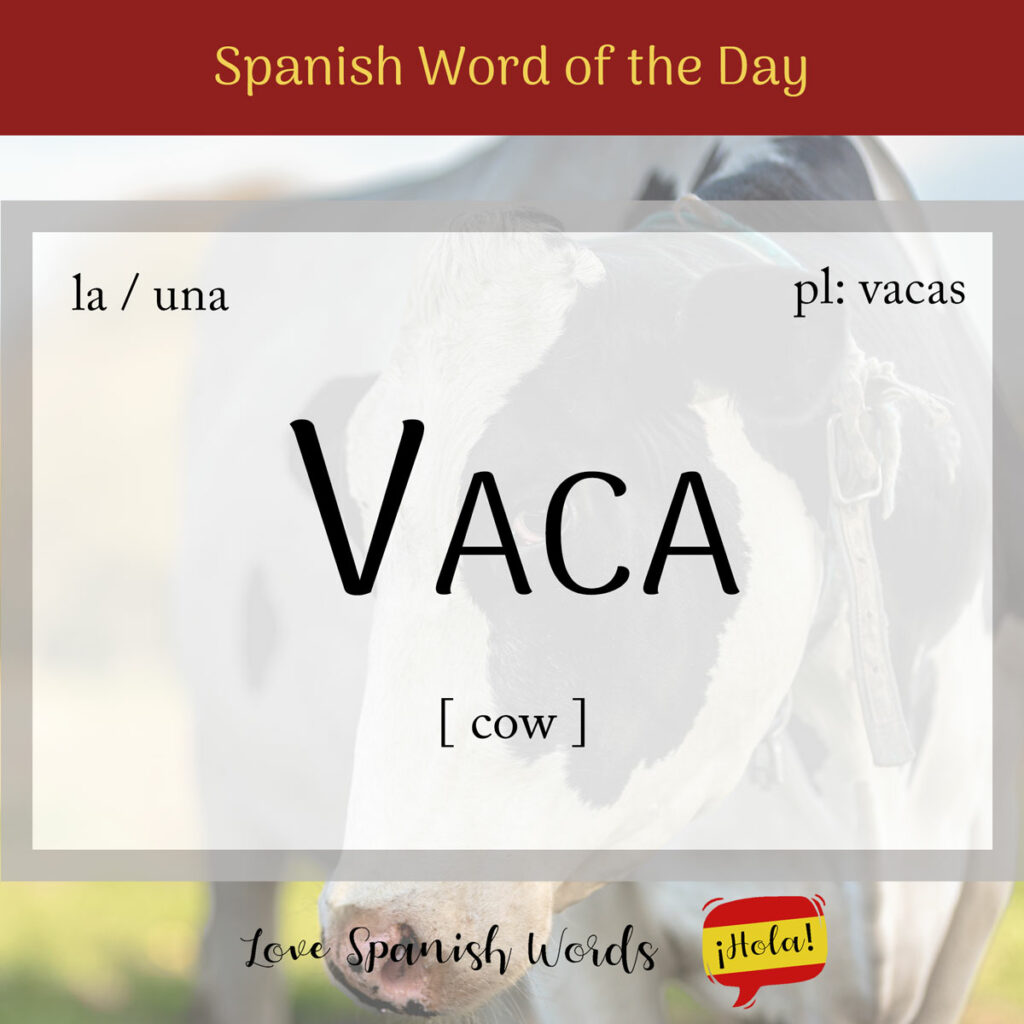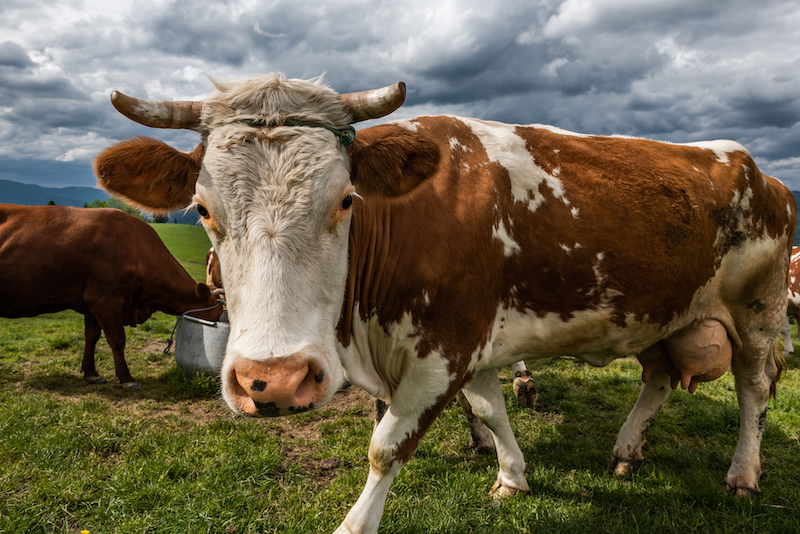The term vaca finds its roots in the Latin word vacca, translating to cow in English. Much like its counterpart in English, vaca denotes the female of the bovine species, while toro (bull) signifies the male counterpart.
To delve into further detail, a vaca specifically refers to an adult female cow that has birthed at least one calf and is capable of producing milk. If it hasn’t yet birthed a calf, it’s termed a novilla (heifer). A young male bovine is known as either a becerro, ternero, or vaquilla (bull calf), while the female counterparts are termed becerra and ternera.
Latin American Pronunciation
European Pronunciation

Now that you know the difference between vaca, toro, novilla, and becerro, let’s look at the following definite and indefinite articles for vaca.
- la vaca = the cow
- las vacas = the cows
- una vaca = a cow
- unas vacas = some cows
Although the official plural of cows in Spanish is vacas, you can also refer to them as a collective group called ganado (livestock). Ganado can also be used for sheep, oxen, goats, pigs, horses, and donkeys.
Fun fact: Ganado is an expression used to tell someone who is dating multiple people that all his or her lovers have gathered in the same location or place!
La vaca es un animal herbívoro.
The cow is a herbivorous animal.
Other words that include the word vaca are:
- leche de vaca = cow’s milk
- vaca lechera = dairy cow
- vaca loca = crazy cow
- vaca marina = sea cow
- carne de vaca = cow’s meat
- vaca sagrada = sacred cow
- queso de vaca = cow’s cheese
Me gusta más la leche de vaca que la de leche de almendras.
I like cow’s milk more than almond milk.
Las vacas son sagradas en la India.
Cows are sacred in India.

In Spanish, milking a cow is expressed as ordeñar una vaca. From the leche (milk), various food items are produced. Some of those items include queso (cheese), yogur (yogurt), mantequilla (butter), helado (ice-cream), cremas (creams), productos fermentados (fermented products) such as probióticos (probiotics), and caseína (casein) which are milk proteins.
When talking about cow’s meat, people will often say carne de res (beef meat) instead of just res, the Spanish translation of the English word beef. When people want to specify what type of animal meat or milk, they say carne de vaca (cow’s meat) or queso de vaca (cow’s milk).
Me gusta ordeñar las vacas del rancho para tomar leche fresca.
I like milking the cows at the ranch to drink fresh milk.
Colloquial expressions featuring ‘vaca’
Vaca is often used as a derogatory term to insult a woman for being fat or overweight.
In Colombia, Vamos hacer una vaca is a colloquial way to say Let’s pool some money together. This phrase is used when collecting money to buy something as a group. It can be something small like pizza, or something big like purchasing land.
In Mexico, una vaca can refer to money that remains from a bet where there is no winner and the money is saved for a new bet.
In Venezuela, vaca mañosa is a colloquial term used for a person who has lots of money. The literal translation is a crafty, clever, or skillful cow. However, it can be used to refer to someone who knows how to cleverly (but inappropriately) make money by stealing secretly, for example.

Fun Fact: The word vaquero (cowboy) is derived from the word vaca and the Spanish suffix -ero meaning worker. In English, it translates to a cow worker which we refer to as a cow herder.
Idiomatic expressions featuring ‘vaca’
Ser más pesado que una vaca en brazos
Literal translation: to be heavier than a cow in one’s arms
English meaning: to be a person who annoys others and is difficult to stand or put up with
Estar con ojos de vaca cagona
Literal translation: with eyes of a shitting cow
English meaning: to be scared shitless

